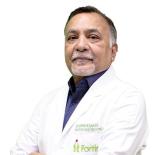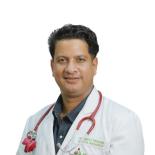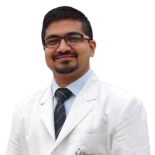About Paediatrics
Paediatrics is a specialised branch of medicine that focuses on the health and well-being of infants, children, and adolescents. It plays an essential role in ensuring the physical, emotional, and social development of young individuals from birth to their teenage years. The word ‘paediatrics’ comes from the Greek words ‘país’, meaning ‘child’ and ‘iatros’, which means ‘healer’. This important lesson reflects their basic mission: The healing of children. Paediatricians are trained and equipped to manage a wide range of medical conditions that may afflict children, including those as simple as minor infections and more complex diseases that may have life-long consequences.
Paediatrics is vast in scope since children are still under development in bodily and immune functions, and their presentations of diseases alongside the treatment demands tend to be highly variant from those of adults. Preventive paediatric care, including immunisations, nutritional counselling, and developmental surveillance, is very important in providing services that determine a child’s proper growth and development. The paediatricians provide care for acute conditions and life-long conditions such as asthma, diabetes, and congenital heart diseases. They can advocate for their patients by showing support for the family, thus providing optimal health conditions to children while reducing childhood mortality rates.
Being unique, paediatrics is not only more than medicine but also requires a very good understanding of the emotional and psychological requirements of a child. Medical complexities in children are further complicated by the inability of the child to convey their level of discomfort accurately, hence further challenging the paediatrician to communicate better with the child and caregivers. In many such instances, paediatric care goes beyond counselling families, guiding parents about how to help their children develop, and generally addressing social determinants of health that will affect a child’s life outcomes. In so doing, paediatricians create a safe environment of support that helps the child and their family navigate the complexities of illness, development, and care in a way that positively affects their futures.
What is paediatrics?
Paediatrics is a medical speciality that deals with the medical care of infants, children and adolescents till the age of 18. Paediatricians are physicians who are interested in this line of work and tend to the individual needs of young patients. Unlike adults, children have specific physiological and psychological needs. The body continuously grows, meaning that there always come developing organs, bones, and immune systems.
Paediatrics has unique effects on the diagnosis and treatment of paediatric patients. Most conditions appear differently in children than in adults, and children’s bodies react otherwise to drugs or treatments. In turn, this calls for special training in the field of paediatrics to deal with these differences. The paediatrician is knowledgeable about normal growth and development patterns and is prepared to offer treatment for various disorders, from congenital abnormalities and genetic anomalies to infections and developmental delays.
The roles of a paediatrician include preventive health care, as he not only treats disease but also monitors the child’s growth, behaviour, and development through regular check-ups during childhood. Such a proactive approach helps in the early stages in identifying potential issues, thereby arriving on time to minimise complications. However, these paediatricians collaborate with other healthcare professionals, including specialists in neonatology, endocrinology, or oncology, when a child has greater medical needs.
Symptoms of paediatric diseases
- Respiratory symptoms: Respiratory illness is one of the most common causes of children consulting any doctor. Wheezing, coughing, shortness of breath, and chest congestion can be asthma, bronchiolitis, or maybe pneumonia, which is a respiratory infection. Usually, respiratory illnesses develop within 24 to 48 hours in infants and toddlers and can become serious enough to require a hospital visit if it is not attended.
- Fever: Fever is one of the most common presentations in children, and it can be due to viral infections as much as bacterial infections. While a low-grade fever may be as innocuous as it sounds, a persistently high fever can be an indicator of more serious conditions such as meningitis or a bloodstream infection. Thus, paediatricians would typically judge the severity of fever in the context of other symptoms to determine causation.
- Gastrointestinal symptoms: Gastrointestinal disorders, such as vomiting, diarrhoea, constipation, and abdominal pain, are very common in children. The causes of these complaints vary and range from gastroenteritis to food allergy and even chronic diseases such as inflammatory bowel disease. Infants often exhibit disorders related to feeding, like colic or reflux, which can be uncomfortable but also distressing to the infant as well as to the parents.
- Skin rashes: Another relatively common complaint in children is rashes. These may result from infections, such as chickenpox or measles, to allergic reactions and skin conditions like eczema. Paediatricians must distinguish between innocent rashes and those associated with more serious underlying illnesses, such as meningococcal disease, for which prompt medical intervention is required.
- Developmental delays: Developmental delays are described as failure to meet age-specific norms in any area of development, including motor skills, language, or cognition. These are signs and symptoms of many conditions, such as cerebral palsy, autism spectrum disorder, and genetic syndromes, including Down syndrome. Early diagnosis and intervention greatly improve outcomes for children with developmental delays.
- Behavioural changes: Behavioural changes in children include irritability, withdrawal, or aggression. These can be signs of emotional or psychological stress in children. In some cases, these may be linked to conditions such as attention deficit hyperactive disorder, anxiety, or depression. Paediatricians also play an important role in diagnosing these issues and further management and support.
- Chronic conditions: Some childhood diseases are chronic conditions that require long-term care. These include type 1 diabetes, cystic fibrosis, and congenital heart disease, each with particular signs that are under close observation. Paediatric patients suffering from chronic diseases require specialised attention to monitor their course and prevent complications.
- Infectious diseases: Children are particularly at risk for infections since their immune systems are still in the growing phases. For example, common ones that may manifest as strep throat, ear infections, or viral illnesses are sore throat, ear ache, running nose, and swollen lymph nodes; immunisations can prevent many infections, and paediatricians commonly recommend adherence to schedules for recommended immunisations.
Diseases treated by a paediatrician
Infectious diseases:
- Respiratory diseases: These include the common cold, influenza, pneumonia, and bronchitis. Children are generally susceptible to viral and bacterial infections, with respiratory tract infections at the top. Infections caused by viruses or bacteria also fall into these categories, such as RSV and croup, which affect infants and toddlers.
- Gastrointestinal infections: Paediatricians also address GI conditions such as stomach flu, food poisoning, and other parasitic infections. Symptoms are usually vomiting, diarrhoea, and pain in the abdomen, which can quickly lead to dehydration in children.
- Ear infections: These are often caused by bacteria or viruses. They can present as ear pain, fever, and hearing difficulties.
- Skin infections: Children are generally more prone to skin infections like impetigo, scabies, or ringworm fungal infections. A paediatrician can diagnose them easily and will normally be able to advise over topical or oral antibiotics and antifungals to employ.
Chronic diseases:
- Asthma: Asthma is a chronic respiratory disease that starts in general during childhood. Children with asthma wheeze, have shortness of breath, and cough because their airways are inflamed. Paediatricians discuss with the family a management plan, medication, and lifestyle change that can be used to control the symptoms.
- Type 1 diabetes: Paediatricians very often diagnose and treat children with the type 1 form of diabetes, a condition where the body cannot make insulin. Such a child will require life-long therapy with insulin, regular monitoring of blood glucose levels, and adjustment in dietary components. Early detection and management by paediatricians can prevent serious complications.
- Congenital heart diseases: Congenital heart diseases are structural anomalies of the heart at birth. Many of them require regular close follow-up by paediatricians in liaison with paediatric cardiologists. Some are benign, whereas others could be life-threatening.
- Cystic fibrosis: This genetic disease of the lungs and digestive system imparts thick mucus in the body, causing partial blockage of the airways and giving rise to frequent lung infections. Paediatricians prefer coordination with specialist doctors to manage symptoms, halt further progression of the disease, and enhance the quality of life of the child.
Developmental disorders:
- Autism spectrum disorder: Children with ASD exhibit developmental abnormalities, particularly concerning communication, social interactions, and behavioural patterns. The paediatrician and other specialists work together in the diagnosis and management of ASD, which involves behavioural therapy, occupational therapy, and sometimes medication to control the co-occurring symptoms of anxiety.
- Attention deficit hyperactivity disorder: This is often characterised by difficulty in concentrating, hyperactivity, or impulsiveness.
Other diseases:
- Allergies: Most children suffer from frequent allergic reactions to food, pollen or pet dander. The diagnosis is made by the paediatrician while conducting a clinical assessment of the child, and other tests may be carried out. Treatments administered could include antihistamines or a change in lifestyle behaviour.
- Obesity and nutritional disorders: Childhood obesity is emerging as a serious concern in all parts of the world. Paediatricians monitor growth charts and advise on diet, exercise, and lifestyles that help children avoid obesity-related diseases like type 2 diabetes and high blood pressure.
Treatment options offered by paediatric experts
Treatment plans are often multi-dimensional and based on all the factors relevant to the child’s development, such as age, emotional stability, and general health. Some of the other key treatment approaches that paediatric specialists make use of include the following:
Medications:
- Antibiotics and antivirals: Antibiotics may be used for conditions such as flu, ear infections, or other local infections. Paediatrics should be considerate with respect to dosing, depending upon the severity.
- Anti-inflammatory: They are employed for conditions such as asthma, juvenile inflammatory arthritis, etc.
- Immunisations: They are vital to prevent children from diseases such as measles, rubella, polio, chickenpox, etc.
- Insulin therapy: For children with type 1 diabetes mellitus, insulin therapy is essential in regulating blood glucose levels.
Behavioural and developmental therapy:
- Occupational and speech therapy: These are mainly administered to children with developmental delays, ASD, or learning disabilities.
- Cognitive behavioural therapy: Children diagnosed with anxiety, depression or ADHD may benefit from cognitive behavioural therapy, which aims at changing thought patterns and behaviour.
Surgery:
Surgery is mainly indicated for conditions such as heart defects, appendicitis, or certain cancers. Paediatric surgeons coordinate with paediatricians to ensure that surgery is carried out effectively and safely.
Nutritional and lifestyle:
Paediatricians also play a crucial role in advising proper nutrition, particularly in children with obesity, type 1 diabetes, or food allergies. They also coordinate with dieticians to give guidance on a balanced diet, portion control, and physical activity.
Long-term care and management:
Paediatricians also offer long-term care and monitoring for children suffering from conditions like asthma, cystic fibrosis, or juvenile diabetes. Such care can be administered through regular check-ups where the progress of the disease may be monitored, medication can be altered, and the child can be kept in good quality of life.
Conclusion
A paediatrician is an important health caregiver, providing care for a wide and varied range of diseases in children, from relatively common infectious diseases to chronic and developmental disorders. Their responsibilities include diagnosis, treatment, guidance on healthy development, and liaison with other specialists for more complicated conditions. Treatment options in paediatrics range from drugs and interventions to surgical procedures, always putting special attention to the conditions of every child. With full and specific treatments, paediatricians care for these children to gain the required medical attention in order to grow up as healthy adults.
Our Team of Experts
View allRelated Specialities
Other Specialities
-
Explore Hospitals for
Fortis Cancer Institute, Defence Colony, New Delhi Fortis Memorial Research Institute, Gurgaon Fortis CDOC, Chirag Enclave, New Delhi Fortis Escorts Heart Institute, New Delhi Fortis Flt. Lt. Rajan Dhall Hospital, Vasant Kunj, New Delhi Fortis La Femme, Greater Kailash II, New Delhi Fortis Escorts Hospital, Faridabad Fortis Hospital, Noida Fortis Hospital, Shalimar Bagh, New Delhi Fortis Escorts Hospital, Amritsar Fortis Hospital, Mohali Fortis Escorts Hospital, Jaipur Fortis Hospital, Anandpur, Kolkata Fortis Hospital CG Road Bangalore Fortis Hospital - Greater Noida Fortis Hospital & Kidney Institute, Gariahat, Kolkata Fortis Hospital BG Road Bangalore Fortis Nagarbhavi Bangalore Fortis Hospital, Rajajinagar, Bengaluru Fortis Hospital, Richmond Road, Bengaluru Hiranandani Fortis Hospital, Vashi, Mumbai Fortis Hospital, Mulund, Mumbai Fortis Hospital, Kalyan, Mumbai Fortis Hospital, Ludhiana S L Raheja Hospital, Mumbai Fortis Hospital Mall Road, Ludhiana Fortis Hospital,Manesar,Gurugram -
Explore Doctors for by Hospital
Doctors in Fortis Cancer Institute, Defence Colony, New Delhi Doctors in Fortis Memorial Research Institute, Gurgaon Doctors in Fortis CDOC, Chirag Enclave, New Delhi Doctors in Fortis Escorts Heart Institute, New Delhi Doctors in Fortis Flt. Lt. Rajan Dhall Hospital, Vasant Kunj, New Delhi Doctors in Fortis La Femme, Greater Kailash II, New Delhi Doctors in Fortis Escorts Hospital, Faridabad Doctors in Fortis Hospital, Noida Doctors in Fortis Hospital, Shalimar Bagh, New Delhi Doctors in Fortis Escorts Hospital, Amritsar Doctors in Fortis Hospital, Mohali Doctors in Fortis Escorts Hospital, Jaipur Doctors in Fortis Hospital, Anandpur, Kolkata Doctors in Fortis Hospital CG Road Bangalore Doctors in Fortis Hospital - Greater Noida Doctors in Fortis Hospital & Kidney Institute, Gariahat, Kolkata Doctors in Fortis Hospital BG Road Bangalore Doctors in Fortis Nagarbhavi Bangalore Doctors in Fortis Hospital, Rajajinagar, Bengaluru Doctors in Fortis Hospital, Richmond Road, Bengaluru Doctors in Hiranandani Fortis Hospital, Vashi, Mumbai Doctors in Fortis Hospital, Mulund, Mumbai Doctors in Fortis Hospital, Kalyan, Mumbai Doctors in Fortis Hospital, Ludhiana Doctors in S L Raheja Hospital, Mumbai Doctors in Fortis Hospital Mall Road, Ludhiana Doctors in Fortis Hospital,Manesar,Gurugram
























